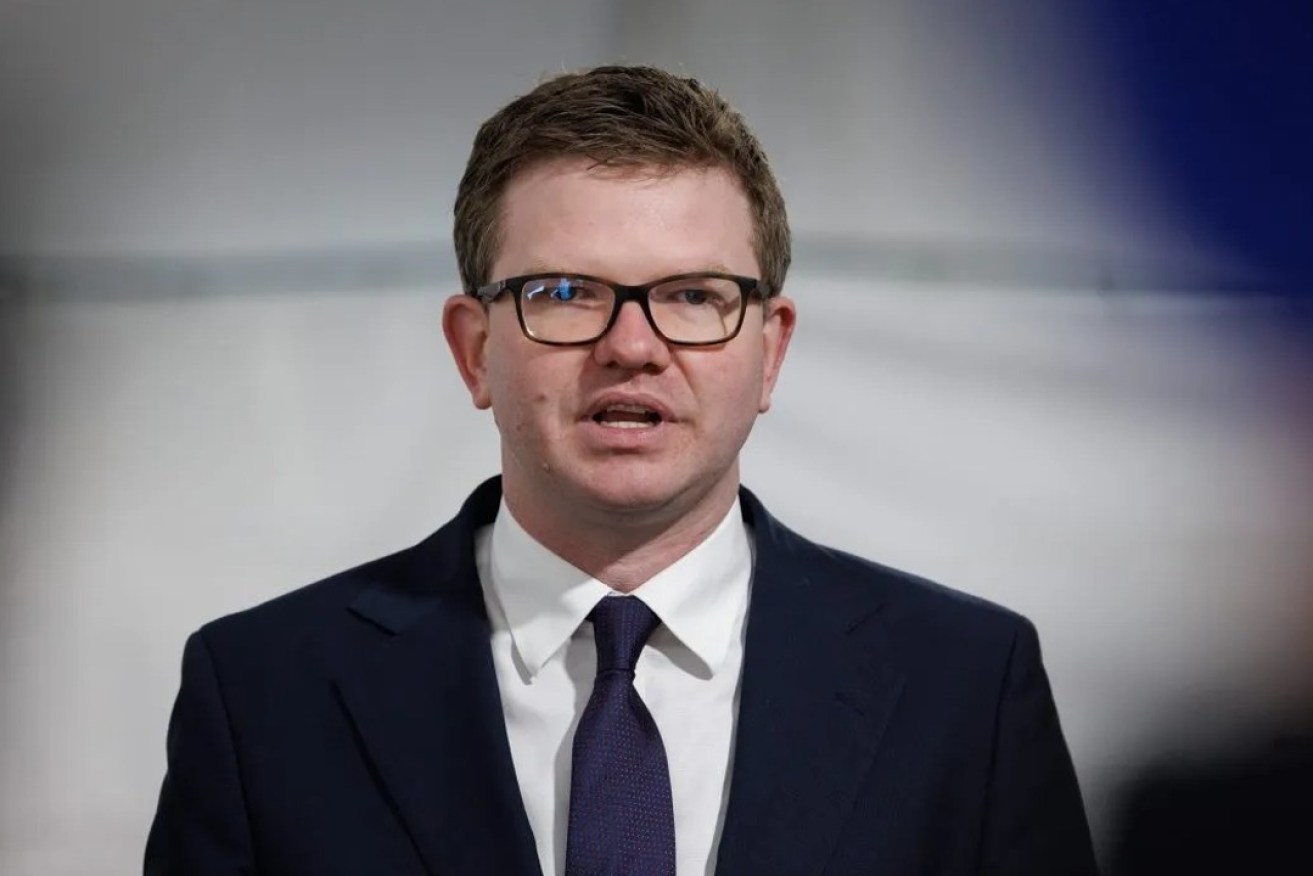Govt orders review into ‘concerning’ ambulance ramping claims
The state government has launched a review into claims that health executives are prioritising treatment for patients who arrive via ambulance instead of sicker patients in hospital waiting rooms.


Health Minister Chris Picton. Photo: Tony Lewis/InDaily
Health Minister Chris Picton said on Thursday that senior clinicians Bill Griggs and Keith McNeil would review the allegations made this week by South Australian Salaried Medical Officers Association (SASMOA) president David Pope.
On Wednesday, Pope posted on social media that emergency department clinicians were being “intimidated to off load ambulance pts (patients) when there are sicker and more urgent pts in the waiting room”.
“The repeated calls from hospital managers demanding ambulance off-load counter to other patient’s urgent clinical needs are so distressing,” he said.
“We back up our nurses but they still receive call after call. No clinician should be subject to this.”
Pope, who is an emergency medicine specialist at the Lyell McEwin Hospital, claimed today that this situation had led to two patient deaths in waiting rooms.
Picton said he took Pope’s allegations “very seriously”.
He said SASMOA had not raised the allegations with him before.
“Based on hearing these concerning allegations today, I have asked for a review to be done of these allegations by two eminent clinical experts to make sure we can get the full evidence and the full answers in relation to the allegations,” Picton told reporters.
Picton said the review would receive evidence, assess the cases that Pope referred to and “have a more general look” at policies in emergency department.
“I think we have to see the evidence of what’s being alleged,” Picton said.
“I’m not aware of any evidence that’s been put forward in relation to these deaths in the waiting room allegedly because of bureaucratic interference.
“I think this review will have the opportunity for people who are making such allegations to put forward their evidence of it.”
Picton said SA Health had a “very clear policy” that patients should be seen in order of their triage category, which goes from one to five.
The policy also states, Picton said, that if two patients are in the same triage category, ambulance patients should be treated first so the ambulance can respond to other emergency callouts.
“We need to make sure that we are responding to cases in the community, but of course we also need to make sure that people are getting an appropriate response in the waiting room as well,” Picton said.
“And I’m very concerned to hear allegations being made that there’s somehow interference in that process when there is a very clear policy.”
Pope welcomed the review, telling InDaily: “We have to stop this occurring. In doing that, we’re going to need to understand what’s driving it.
“It goes to why we’re being intimated into seeing patients out of clinical order and why that’s escalating, especially in light of the worsening ramping figure.”
Asked if hospital executives were prioritising ambulance patients due to fears about escalating ramping figures, Pope said: “I guess so, I can’t speak for them.
“But what we’re seeing is just phone call after phone call after phone call to unload ambulances when we’ve got no capacity to do so and there are sicker patients in the waiting room needing our attention.”
SA Health has denied that patients are not being treated in order of clinical need.
Picton said the Griggs and McNeil’s review would “hopefully” be completed before Christmas.
Griggs was Director of Trauma Services at the Royal Adelaide Hospital from 1995 to 2018 and State Controller for Health at the Department of Premier and Cabinet from 2007 to 2017.
The now-retired medical practitioner also held several senior roles with both the SA Ambulance Service and St John Ambulance Australia across a more than 40-year career. He was named South Australian of the Year in 2009.
McNeil, meanwhile, is South Australia’s Commissioner on Excellence and Innovation in Health. Before that, he was Queensland Health’s Chief Medical Officer.
The review comes after the state government released statistics on Wednesday showing November was the worst month of ramping in South Australia on record.
The November figures showed that ambulances spent 4285 hours outside hospital entrances waiting to admit patients, eclipsing the previous record of 3968 hours in March this year.
Earlier today, Premier Peter Malinauskas said it was “patently false” to suggest there was political interference in emergency department triage practices.




